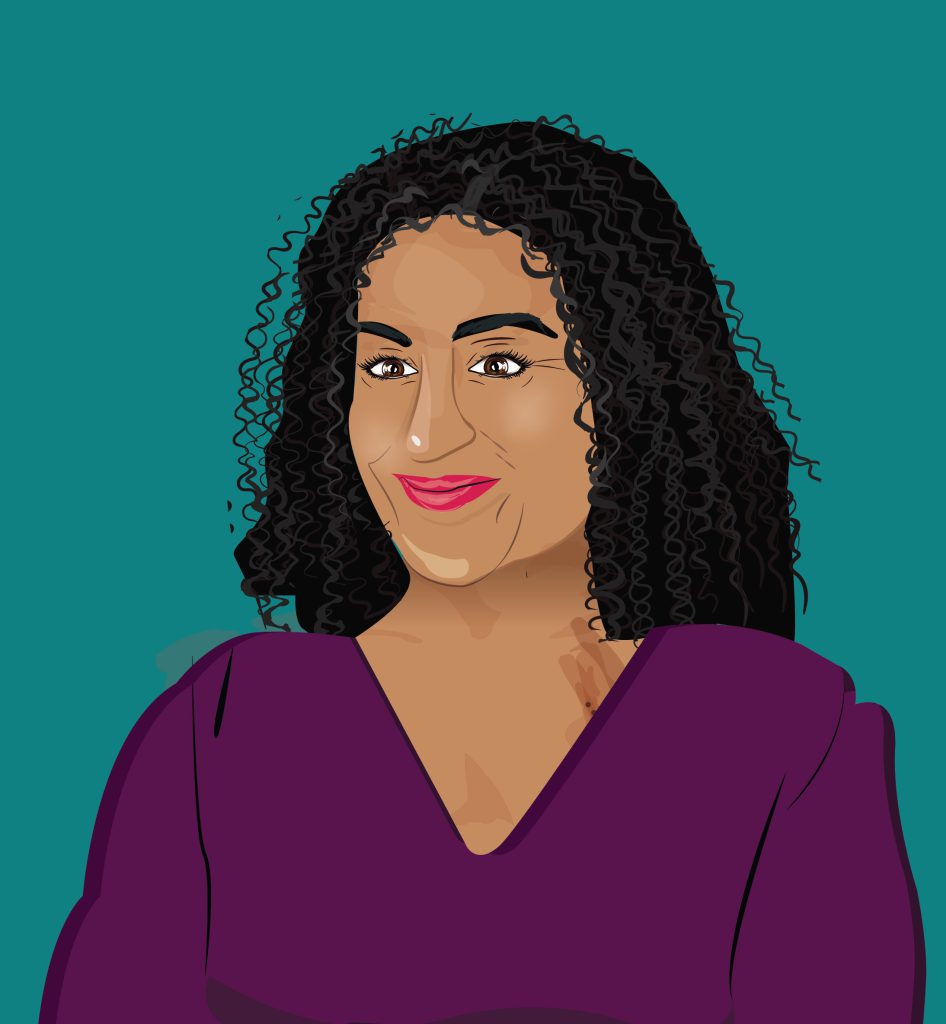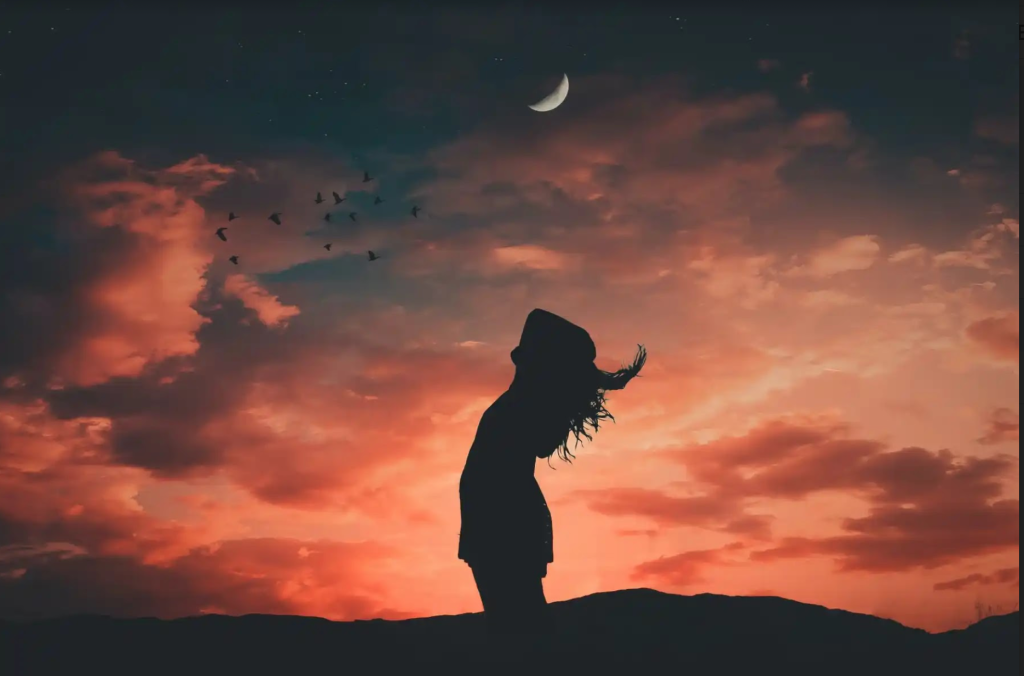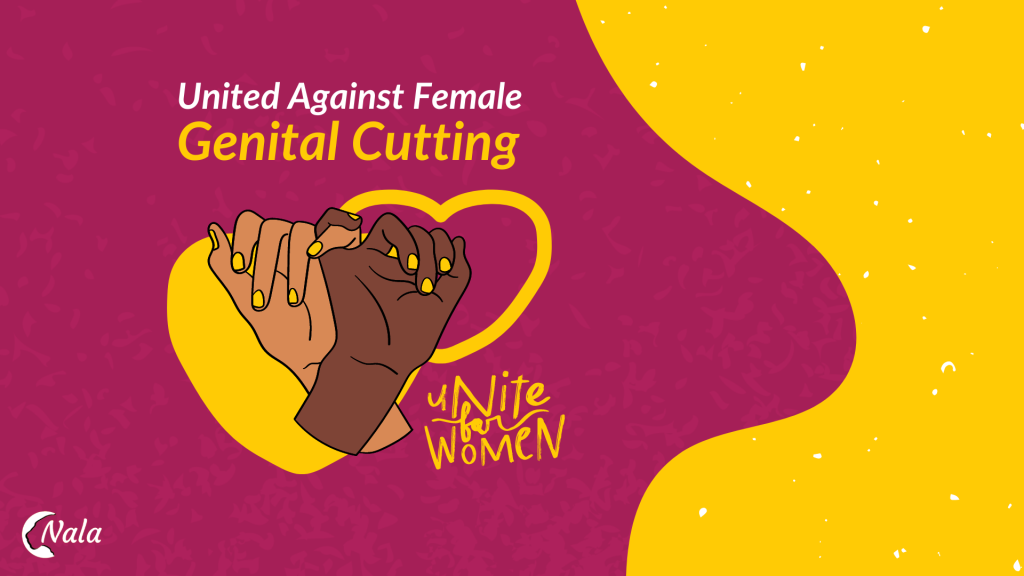Dear Maasi: “How do I move past the shame of being cut?”

Dear Maasi is a column about everything you wanted to know about sex and relationships but were afraid to ask! It’s a partnership between Sahiyo and WeSpeakOut, and is for all of us who have questions about khatna (female genital mutilation/cutting or FGM/C) and how it impacts our bodies, minds, sexualities and relationships. We welcome you to submit your anonymous questions. Dear Maasi, I have a question about the deep shame I hold for being cut. It is so toxic and permeates throughout my life. How can I move past it? —Anonymous Dear Anonymous, Shame is an important topic that doesn’t get addressed enough—thanks for asking this question. Shame results when our inner critic judges us harshly, most often about things we’ve had little or no control over. These judgements come from the negative or abusive messages imposed on us as children. Shame doesn’t just criticize our behaviours but something more integral: our worth as human beings. For this reason it can impact all aspects of our lives. Khatna, or female genital cutting, stamps shame on the body. As kids, we don’t have the capacity to understand why a confusing and painful thing is happening to us. The taboo and secretive nature of the practice reinforces the shame. Most children turn the blame and shame inward, rather than pointing it at the trusted caregivers who are betraying us. So how do we begin to resolve shame? There are many paths to healing: Begin to intentionally cast a compassionate gaze upon yourself. At first, your affirmations may feel false, but with repetition, that will change. View your inner shamer as a child-like protector who functions to keep you feeling small and worthless in order to avoid further harm. Thank it for its diligent work and remind it that you’ve grown up and have other resources for feeling safe. This is an Internal Family Systems approach. Learn more through this 14-minute video. Seek out a trauma therapist who can help you work through the khatna. Doing so enabled me to identify the child-logic (the ways I made “sense” of the traumatic moment as a kid) that led to me internalizing the blame. This child-logic had long legs that impacted many aspects of my life, including self-expression, romantic relationships, friendships and work. Check out my January 2021 column for tips on finding a therapist. Debunk the myths you’ve learned about your sexuality and body. Most of us have learned that our genitals are “bad” or “wrong” or “dirty.” If we don’t shame our elbows, why would we shame our vulvas? Talk to other khatna survivors or listen to their stories. This will remind you that you’re not alone, and not to blame. Anonymous, healing from shame takes time and effort, but it is possible. I wish you all the best in this journey! —Maasi About Maasi, aka Farzana Doctor: Farzana is a novelist and psychotherapist in private practice. She’s a founding member of WeSpeakOut and the End FGM/C Canada Network. She loves talking about relationships and sexuality! Find out more about her at http://www.farzanadoctor.com. Disclaimer: While Farzana is full of good advice, this column won’t address everyone’s individual concerns and should not be used as a substitute for professional medical or psychological care.
A reflection on Sahiyo’s Activists Retreat: A sense of belonging

By Amena I attended Sahiyo’s Activists Retreat because it stands for a cause I believe in to end female genital mutilation/cutting (FGM/C) for future generations of girls. This was the first time I was able to connect with people who have a similar stance on this cause and meet allies and people who have been through a similar experience as me, or know someone who has been through it. It was such a pleasure to be a part of something like this retreat. I learned and realized that everyone has different experiences regarding FGM/C. For something that is so taboo to talk about, it’s hard to know, understand, and even accept that there are allies out there creating change in our community to end FGM/C. To be specific, women often feel like they are alone in regard to this subject. Having men actively wanting to be allies and support our efforts to create change is nice to see, and so it was helpful for me to know there were male participants at our Activists Retreat. I’m also currently an intern for Sahiyo U.S., and I’m hoping to make some significant contributions during my time with them. I think attending this retreat was a great way for me to get my foot in the door with this cause, and that it can help others who may want to get involved. It can also give you a sense of community as it did for me. I look forward to attending the Activists Retreat in the future, hopefully in person next time. To learn more about the 2021 Activists Retreat, take a look at our Report.
Introducing Nala Feminist Collective: African Women and The 10 Demands, including ending female genital cutting

African women continue to struggle to find the right spaces to speak and share the realities of our generation. We do not lack bravery or confidence, but advocacy spaces that would engage our stories with kindness and actual solutions. Our feminist ancestors have taught us that what brings us together is our Pan-African solidarity. As African women, we will not allow anyone to keep us quiet. We know and recognize that the future cannot be just, peaceful and equal if young women and girls remain subject to gender-based violence such as female genital mutilation/cutting (FGM/C), other forms of domestic violence and femicide. Enough is enough. African women want and expect to be freed from the societal misconceptions which fuel the prevalence of FGM/C. It was groundbreaking to bring together 1,500 young people from across the continent during five Africa Young women Beijing + 25 virtual regional barazas (or convenings) hosted by the African Union Special Envoy on Youth, Aya Chebbi, in November 2020. The barazas opened up a space for sharing and speaking on the issues that challenge African women’s access and mobility spatially and socially. This was based on the premise that Africa’s women do not need anyone to speak on their behalf. They have voices and demands that must be heard and acted upon with the respect they deserve. The regional consultations culminated in the Africa Young Women Beijing + 25 Manifesto—a revolutionary feminist document that carries 10 bold demands. These are the hopes and aspirations that come to exist against sexist national laws, marginalization, and the lack of economic justice. As expressed by Africa’s young women, FGM/C remains a tool used to oppress their bodies—as an act of gender-based violence which many women have been forced to remain silent about for decades. Unlike other spaces, the manifesto was not built upon the problematic framing which discusses women’s issues without giving them agency. Instead, it was created through their inputs, generous sharing, radical honesty and listening. What about the other demands? FGM/C interlinkage with other forms of inequalities must be recognized. Each of the Manifesto’s 10 Demands provides an important roadmap to re-affirm that liberation pathways for young women are multi-layered and include demanding the provision of legal, physical and psychological support, shelters and specialist services to women subjected to all forms of violence, to demanding the removal of taxation on menstrual products, enforcement of progressive period policies in all workplaces, and the provision of free sanitary pads and sanitation in all schools. African women and the 10 demands: Economic Justice The Criminalization of Gender-Based Violence The End of Gender-Based Discrimination Access to Justice and Protection Sexual and Reproductive Health and Rights Mental Health and Well-Being Inclusive, Equitable and Quality Education Digital Justice Silencing the Guns Intergenerational co-leadership What binds the manifesto together is an equitable desire to center women’s voices within policy and decision making spaces in which they are absent— an absence that can be deemed violent. These are spaces in which African women are being spoken for, without inclusion. The Generation Equality Forum in Paris provides us, as the Nala Feminist Collective, with a unique opportunity to advocate for the implementation of these 10 demands. We are powered by African women’s words with a document that unites our voices, across urban and rural, online and offline spaces. Our Nala Council is made of 17 feminists with a mission to foster, enable and mobilize young women from Africa and the diaspora, bridging the gap between policy and implementation, intergovernmental and grassroots organizations, as well as generational spaces. Together—not without Africa’s young women. Join our advocacy. We have launched our 10,000 Signature Campaign. We need your support. The fight cannot be solo. Lend your voice to African young women and sign the Manifesto.
A reflection on Sahiyo’s Activists Retreat: Creating an impact to end female genital cutting

By Anonymous I had the opportunity to attend Sahiyo’s second virtual Activists Retreat (my first one) last month and absolutely loved every second of it. I had been feeling extreme Zoom fatigue leading up to the weekend, and wasn’t exactly looking forward to spending an entire weekend on Zoom. But as soon as the weekend started, I forgot about how tired I felt and immersed myself in all of the activities. My favorite part of the entire weekend was definitely just interacting with all the other attendees: getting to know them, hearing their stories and ideas, and feeling a sense of community even though we were all miles apart from each other. Together we created a space that was truly welcoming and inclusive. During one of the sessions, a past participant even privately messaged me. She noticed I had been quiet and encouraged me to share my thoughts. She gave me the push I needed to speak up and share my ideas, something I would not have normally done. It seems crazy to say that the Activists Retreat created change over the span of three days of virtual sessions. But after participating in it first hand, I can confidently say that it did have an enormous impact on the overall movement to end female genital cutting (FGC). During our closing session, I noticed other attendees, myself included, simply reflecting on everything we had learned. We learned about the long legal history of FGC in the U.S. and globally, about sexual health in the context of FGC, about the experiences, actions, and ideas of other attendees. There were first time attendees who participated in the retreat unsure of where they stood on the issue that ended the weekend with a lot to ponder. We also outlined action items, both individually and as a group, of tangible things we wanted to work on and accomplish over the next year, from raising money so Sahiyo can continue to sustain itself to work toward policy change at the state level. One of my goals was to speak to my own friends from mosque, something I had been wanting to do for a while, but always felt too scared. Last week, I had dinner with one of these friends, and at the end of the night I just decided to go for it and ask her about FGC. We were able to have a long conversation about it and I got to learn her perspective, and she learned mine. She said she didn’t have enough knowledge about the topic but was thankful I had brought it up to her. She said she would do more of her own research when she got home. Without the Activists Retreat, I don’t know if I would have had the courage or mindset to have this conversation with my friend. But knowing there were other people who were also having these difficult discussions and were pushing themselves to advocate against this issue motivated me to do the same. Throughout this year, I am going to continue working toward my goal to talk to more of my friends about FGC, and in doing so, broaden the conversation so we can protect the next generation of girls. To learn more about the 2021 Activists Retreat, take a look at our Report.
